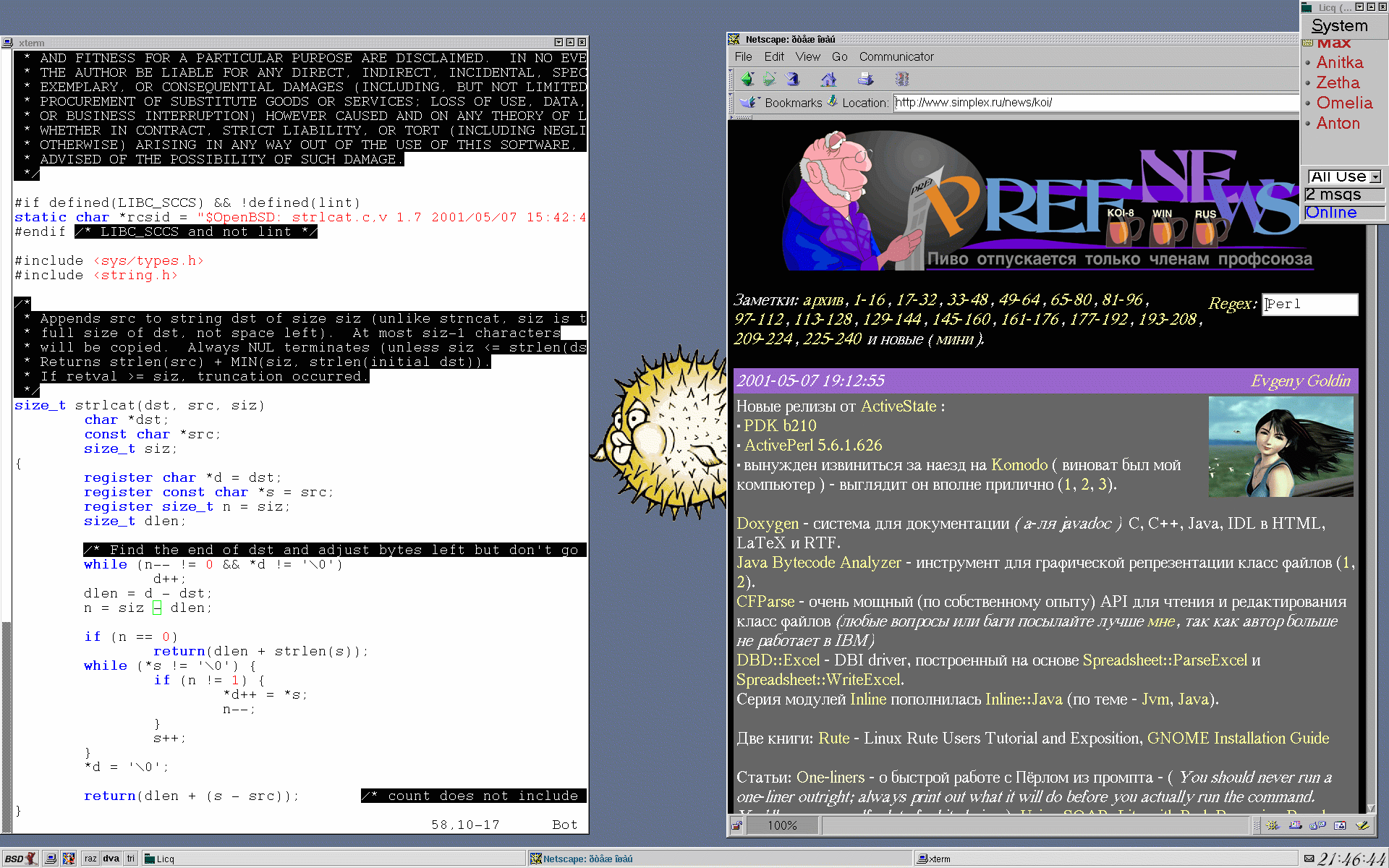OpenBSD is a free and open-source Unix-like computer operating system descended from Berkeley Software Distribution (BSD), a Research Unix derivative developed at the University of California, Berkeley. In late 1995, Theo de Raadt forked it from NetBSD. Besides the operating system as a whole, the project maintains portable versions of many subsystems, most notably OpenSSH, which are available as packages in other operating systems.
The project is known for its developers' insistence on open-source code, good documentation, code correctness, ongoing code audits, and security. As of February 2018, only two remote vulnerabilities have ever been found in the default install, in a period of almost 22 years - a fact prominently displayed on the OpenBSD website. It has strict policies on licensing, preferring the ISC license and other variants of the Simplified BSD License. Many of its security features are optional or absent in other operating systems. Its developers frequently audit the source tree for software bugs and security holes. According to OpenBSD expert Michael W. Lucas, OpenBSD "is widely regarded as the most secure operating system available anywhere, under any licensing terms."[5]:xxix
